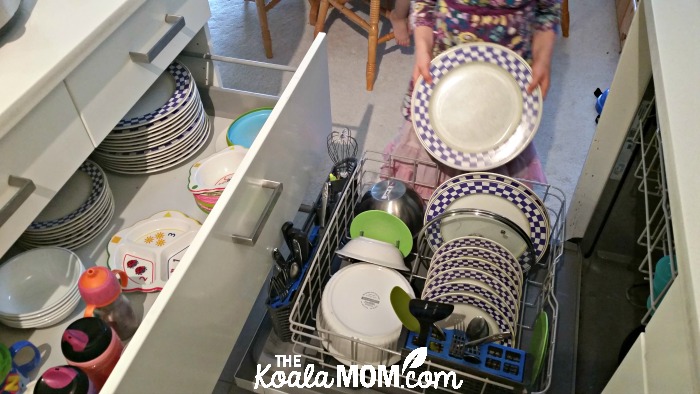Getting your homeschooled child ready for college can seem like a tall order. After all, you’ve been in charge of his or her education for several years or even the entirety of their primary and secondary education. As you contemplate how your child may fare once out on his or her own, you may have some concerns regarding the adjustment period from homeschool education to public education. Read on for some tips to help your homeschooled kid adequately prepare for their first year of college.

This post contains affiliate links; as an Amazon associate, I earn from qualifying purchases.
Helping your homeschooler apply for college
As a parent, you may worry that your child will be at a disadvantage when it comes to applying for college. The educators at miller-motte.edu and many other colleges are now actually very open to accepting homeschool students and have a specific admissions process for homeschoolers. Research your college of choice to see what their admissions requirements are. Online sites such as CollegeData can help you and your child research post-secondary schools and prepare to apply.
As your child completes high school, remember to document their academics and extracurricular activities. You can create a high school transcript for your student to present to universities, colleges, or even prospective employers. You may need to include more details about courses on this transcript for universities. According to U.S. News, “Admissions consultants say colleges want details about the applicant’s home schooling program, the reasons the student opted to home-school and how they structured their studies.”
Another way to help your child get into a university is to have them complete standardized tests. For example, as a homeschool student, I went into my local high school to write the same grade 12 exams that every student in Alberta wrote. This gave me a transcript of marks (independent of my mom) that I used to apply for university and summer jobs. Writing tests is good experience for homeschool students (as there will be exams in university!) and also provides a third-party, independent proof of their marks.
Start college courses in high school
One of the best ways to prepare your child for the rigorous course load of higher education is to enroll your kid in college credit courses while still attending high school. You can often do dual enrollment with a local university or community college, which can help your child get some intro courses out of the way. That way, your child won’t have to sit in crowded lecture halls to take entry-level classes with hundreds of other students. Online courses make this easier to do than ever before.
Another option is to choose a college program that will double as your child’s grade 12 year. For example, Augustine College in Ottawa will accept students into their diploma program for their grade 12 year. Students will earn a diploma and complete courses that are transferable to numerous other universities.
Teach study and planning skills
You should also have your student practice taking notes. As a homeschool student, they likely aren’t used to learning from lectures or talks. Most of my homeschooling involved reading a textbook and completely writing or workbook assignments. However, my family frequently attended conferences, where I took notes on the topics being discussed. You can also look for conferences for your homeschooler to attend and take notes, or have your student watch lectures online (such as TED Talks) and write down notes as they watch.
High school students can also start using a planner. Instead of doing all the planning for your student, involve them. Discuss how they can finish their science textbook in a year or what deadlines they need to meet in order to finish a history unit. They can write their daily assignments in their planner and check them off as they finish them. They can also write down deadlines and important dates. This will help them keep track of due dates and studying when they reach university.
Complete some high school courses online
If you’ve been your child’s only teacher for the last several years, he or she may struggle with a new set of teachers with new policies and procedures to follow. Unlike in homeschooling, your child will have to adhere to the professor’s late policy and attendance policy. I was an eager beaver who was anxious to please my new professors, so I did exactly what they recommended in my university professors. Other teens may find it harder to adjust to a professor’s demands.
One way to help your child prepare for new teachers is to sign him or her up for some online classes or local high school or co-op classes. Kids may feel they can negotiate with a parent or procrastinate on assignments, but that won’t be tolerated by a different teacher or professor. My younger brother completed several math and science courses through our local high school while finishing his other courses at home. This year, we’ve enrolled our older daughters in a local homeschool blended program so they experience the more rigorous expectations of a teacher.

Keep high school coursework rigorous
Colleges may be concerned that homeschooled students enjoyed a lighter course load with their parents as their educators. Even many homeschool parents worry that they aren’t giving their students enough homework! While you don’t want to burn out your homeschooler, you also want to ensure that he or she takes academically challenging courses at the high school level to prepare them for university. Chat with your supervising teacher (if applicable) or other homeschool moms about appropriate high school coursework.
Explore potential majors
As your child moves through high school, he or she may start to think about potential college majors. Since you’re homeschooling, you’re in a unique position to let your child explore and learn more about possible majors. For example, Sunshine dreams of a career in marine biology, so she spent a year exploring oceanology.
Whatever your child’s career goal, look for ways for them to take courses, read books, and pursue that goal. You can take this exploration phase a step further by encouraging your child to shadow people in their chosen field. This way, your child can get a good idea if he or she enjoys something before investing a lot of time and money during college courses related to their field of interest. When I was a teen, I spent about a year volunteering once a week at our local veterinary clinic. While I enjoyed taking care of the dogs and cats there, I realized I didn’t want to make it my career.
Teach your kids life skills
One of the benefits of homeschooling is that your children are around home all day to see you doing the everyday chores like cooking, cleaning and shopping. My brothers and I usually cooked lunches for ourselves as homeschool students. In our teens, Mom also had us each cook supper one night a week. We also helped with the household chores and I regularly did the grocery shopping run with Mom.
While preparing your teens academically for university, it’s also a good idea to assess their life skills. Can your teen do his or her own laundry? (My uncle actually ended up teaching my brothers to do their laundry while they were working for him on his farm one summer! Until then, Mom or I had done the family laundry but my uncle wasn’t going to wash their clothes for them!) Can your teen cook a basic meal? Does she know how to shop for groceries? Can he clean up the kitchen after he’s cooked and eaten?

Don’t forget about vehicle maintenance too. If your teen is driving too and from classes, make sure they know how to change a flat tire and check their oil. Even if they are driving the family vehicle, have them take it for an oil change or help a parent with basic maintenance. Although my dad or brother took care of my vehicles until I got married, they still tried to teach me to change a tire and often got me to “help” them fix minor problems (aka, watch and keep them company while they did the work).
These skills are invaluable and will help your kid maintain a fulfilling sense of independence. It will also help them save money, which brings up the next skill they need to know before university: personal finances!
It’s a good idea to make sure your child understands their finances and money management. Many kids enter the real world without the ability to budget accordingly. With this lack of experience, they often wind up blowing through their savings account quickly, putting them in compromising financial situations. To avoid that dreaded phone call the first few weeks in which your child begs you to send them money to fund their late-night snack runs, teach them how to manage their money before they graduate high school.
Consider other options
Is your child ready to start college or university right after high school? While many of us assume that this is what our kids are going to do, it’s not the only option. Your child may wish to continue their education while staying at home. There are plenty of online options (especially since the pandemic started!) for kids to complete part or all of their degree online. This can let your child save money (fewer living and transit expenses) and gain that university experience.
Instead of university, your child may wish to complete an apprenticeship or enroll at a local trade school. While my younger brother and I both followed our parents’ example of getting university degrees, my twin brother apprenticed with a local shop to become a heavy duty mechanic. Taking a gap year to travel, volunteer, or attend a Bible school is another option. My cousin and one of my university friends spent a year traveling and volunteering before starting their degrees, and I’ve always thought the experience and maturity they gained during that year were valuable.
In conclusion
With some planning, you can prepare your homeschooled child for anything thrown his or her way in college. It’s bittersweet to watch your children move out and start their lives as working adults, but you can rest assured knowing that you’ve equipped your child with the skills he or she needs to be successful.
What concerns do you have about preparing your homeschool student for college? Or if you are a mom whose homeschoolers are already at college, what tips would you share for getting them there?

No Responses Yet